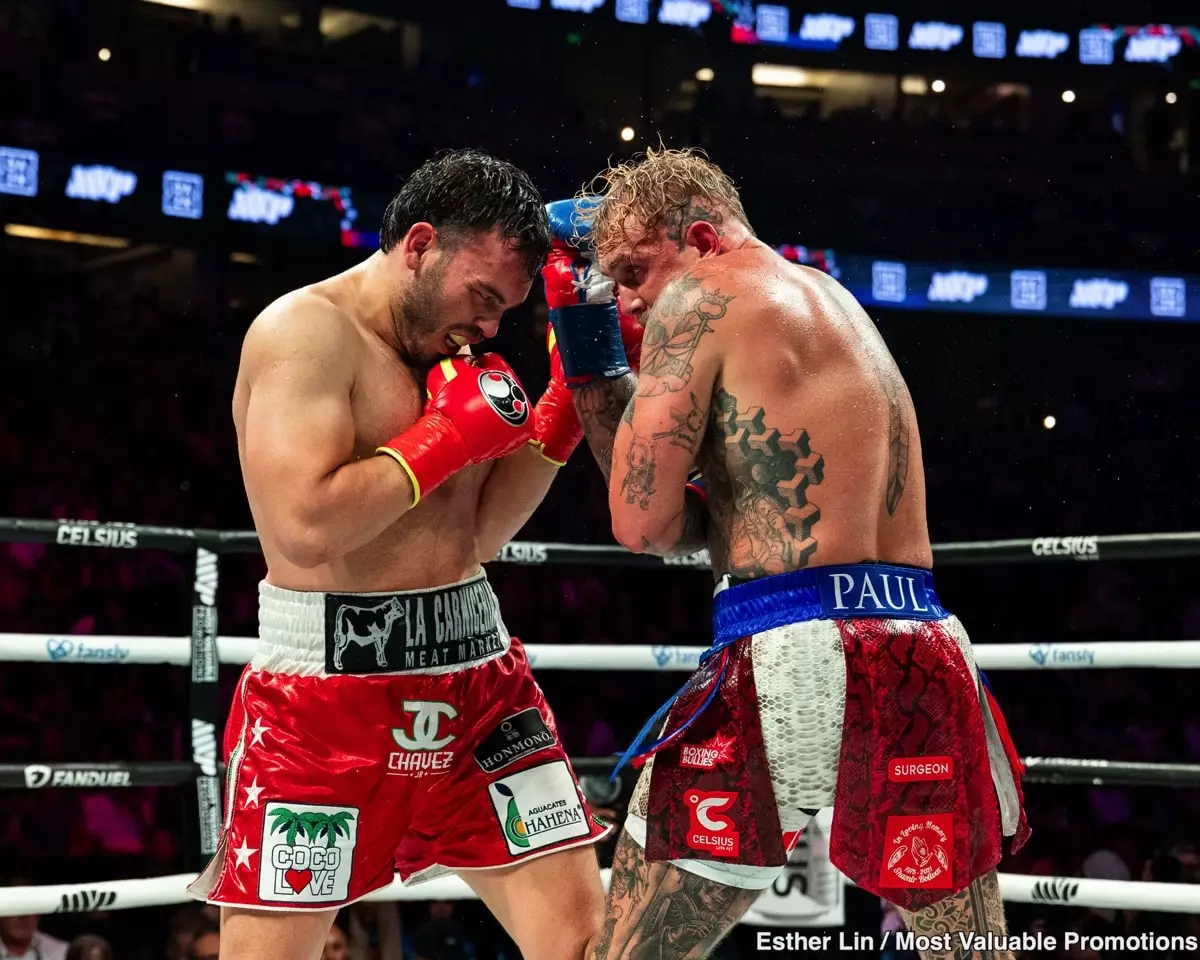Vergil Ortiz’s recent critique of Jake Paul doesn’t just cut deep—it slices through the fog of hype that surrounds the influencer-turned-boxer’s rise. Ortiz, a bona fide welterweight knockout artist, didn’t mince words in calling out what many seasoned boxing enthusiasts have long suspected: Jake Paul’s boxing career is more spectacle than sport. The relentless buzz around Paul’s bouts, fueled by social media fanfare and savvy marketing, masks a troubling pattern—a circus masquerading as legitimate competition.
The heart of Ortiz’s argument rests on a simple, brutal truth: Paul’s fights are carefully orchestrated displays, not genuine athletic contests. The formula is painfully obvious—find a faded or marginal combatant, hype up a trash talk narrative, and park the whole thing in the social media echo chamber, where millions of uncritical viewers are primed to believe they’re witnessing something meaningful. This isn’t boxing; it’s a recurring charade that trades on the illusion of conflict and stakes. Yet, countless viewers keep lining up to pay for replays of this farce, convinced that the next iteration will finally deliver “real” drama inside the ropes.
The Industry’s Complicity: Enabling the Illusion
What’s even more disheartening is the complicity within the boxing industry itself. Promoters, broadcasters, and media outlets have shamelessly embraced Paul not because he’s a legitimate competitor, but because he commands an audience unreachable by traditional fighters. The obsession with follower counts and viral potential eclipses meritocracy and fight quality. The result? Real contenders—fighters who grind daily in gyms, who endure physical punishment and personal sacrifice to earn their place—are overshadowed by theatrics and recycled controversies.
Ortiz’s critique hits hard because it reveals the industry’s incentives are misaligned. Why invest in promoting a brutal, unpredictable fight when a scripted spectacle with guaranteed entertainment-driven spikes in viewers delivers more profit? Boxing’s soul is at stake, and the money chase is steering it dangerously close to irrelevance among true fans.
The Fan Base Problem: Outsiders Mistaking Noise for Realness
Much of Paul’s appeal arises from a digital-savvy but superficial fanbase—viewers whose engagement is measured in clicks, shares, and soundbites rather than an understanding of boxing’s nuances or respect for its traditions. Ortiz points out that Paul’s supporters often lack firsthand experience with the sport, frequently content to cheer on the spectacle from behind screens while labeling critics as “haters.” This disconnect creates a feedback loop where viral content trumps skill and substance.
There’s a striking irony here: fans consistently pay for what Ortiz calls “the same hollow fight,” persistently hopeful that Paul’s next opponent will finally offer a true challenge. It’s a textbook example of the “insanity” many boxing purists see—repeating a fruitless gamble without learning. The cycle reinforces the illusion and prolongs an entertainment bubble that’s unsustainable.
Questionable Opponents and Suspected Fixes
Ortiz’s anger isn’t directed solely at Paul and his fanbase; it extends to the choice of opponents, often former fighters past their prime or notorious for underwhelming performances. Case in point: the controversy surrounding Paul’s bout with Julio Cesar Chavez Jr. While Chavez isn’t some unknown quantity, his lackluster showing raised eyebrows and fueled speculation of a fixed contest or one fought without genuine effort.
This suspicion isn’t unfounded. Chavez Jr.’s history of “bottling” fights—a term boxing fans use when a fighter folds under pressure—diminishes the competitive integrity of any bout he’s involved in. Whether rigged or simply an opponent mailing in a performance, it reflects poorly on the spectacle and the business model underpinning it. More importantly, it alienates serious viewers who expect authenticity rather than stunt casting.
The Cultural Divide in Combat Sports Appreciation
At its core, the divide between Paul’s camp and boxing purists reveals deeper cultural and generational rifts. The rise of influencer boxing blurs lines between entertainment and sport, appealing to those who prioritize charisma and viral moments over discipline and craft. While this trend isn’t inherently negative—there’s room for all kinds of spectacle—it becomes problematic when it threatens to eclipse a storied sport built on decades of dedication and sacrifice.
Ortiz embodies a traditional ethos—fighting for legacy, enduring hardship, and earning acclaim through genuine skill. His frustration is that this ethos is being drowned out by an ever-louder chorus of digital noise, where clout masquerades as legitimacy. The question is: can the boxing world reclaim its dignity, or will it continue shrinking into a sideshow driven by clicks, sponsorship, and shallow narratives? Ortiz’s perspective forces the boxing community, and fans alike, to confront this dilemma with uncomfortable honesty.
A Sport at a Crossroads
Jake Paul’s ability to rake in millions amidst criticism speaks to a broader challenge in modern sports entertainment—balancing authenticity and spectacle in an age of social media. Ortiz’s condemnation isn’t just a gripe; it’s a stark reflection of how boxing risks becoming collateral damage in the digital attention economy. The sport’s survival depends on real talent being recognized and promoted, not the continuous recycling of publicity stunts disguised as fights.
Whether Paul ever transitions into a legitimate contender remains doubtful, but his success has already catalyzed a reckoning. As true fans and practitioners debate what boxing should stand for, one thing is clear: the art of fighting cannot be reduced solely to viral moments if it is to maintain its meaning and respect in the global sporting landscape. Ortiz’s blunt truth-telling, discomforting as it may be, might just be the jolt boxing needs.

